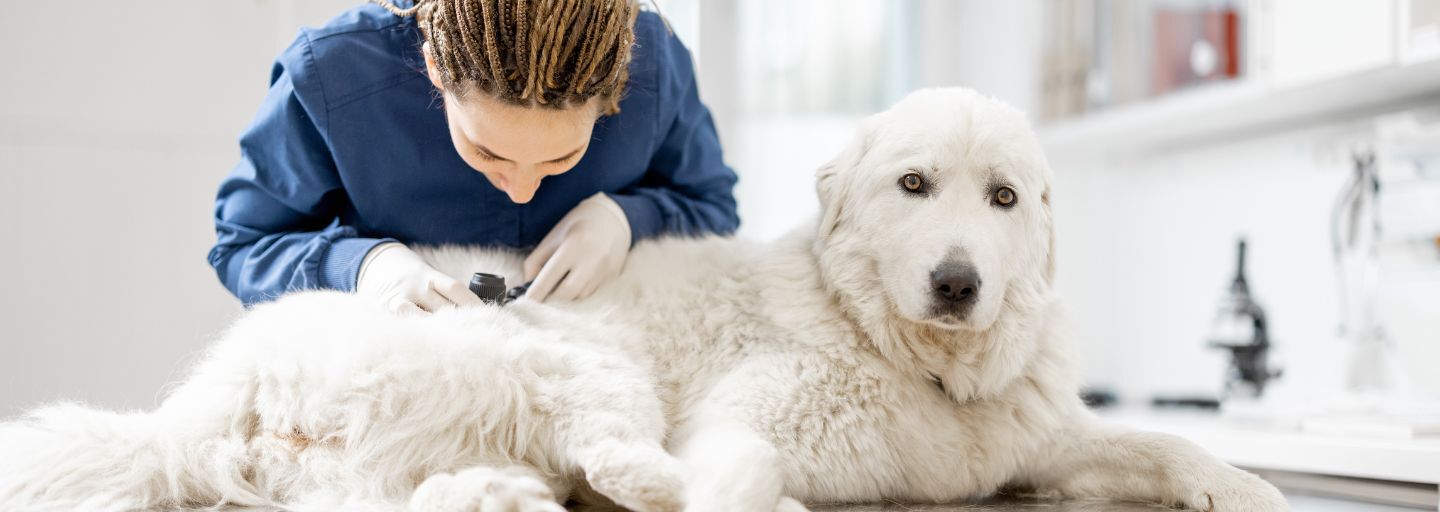If you're a dog owner, you may have noticed your furry friend scratching themselves from time to time. While occasional scratching is normal, excessive scratching can be a cause for concern. It's important to understand the reasons behind your dog's scratching behaviour to ensure their comfort and well-being. In this article, we will explore some common reasons why dogs scratch and what you can do to help alleviate their discomfort.
- Fleas and Parasites: One of the most common reasons for a dog's scratching is fleas and other parasites. Fleas are tiny insects that can infest your dog's fur, causing intense itching and discomfort. Other parasites, such as ticks, mites, or lice, can also lead to scratching. Regular flea prevention and routine check-ups with your veterinarian can help prevent and treat these pesky parasites.
- Allergies: Just like humans, dogs can develop allergies to various substances, including certain foods, environmental allergens (such as pollen or dust mites), or even certain materials. Allergies can cause intense itching and lead to excessive scratching. If you suspect your dog has allergies, consult with your veterinarian to determine the allergen and develop an appropriate management plan, which may include dietary changes or medication.
- Dry Skin: Dry skin is a common cause of itching in dogs, especially during dry weather or in certain climates. Dry skin can be caused by factors such as low humidity, frequent bathing with harsh shampoos, or underlying health conditions. Providing your dog with a balanced diet, regular grooming, and using moisturizing products specifically formulated for dogs can help alleviate dry skin and reduce scratching.
- Skin Infections: Skin infections, such as bacterial or fungal infections, can lead to itching and scratching. These infections can occur due to factors like allergies, underlying health conditions, or poor grooming habits. If you notice redness, swelling, or a foul odour coming from your dog's skin, it's important to consult with your veterinarian for a proper diagnosis and treatment plan.
- Hot Spots: Hot spots, also known as acute moist dermatitis, are localized areas of inflamed and infected skin that can cause intense itching and scratching. Hot spots can develop due to factors like allergies, insect bites, or excessive licking and chewing. Prompt veterinary attention is necessary to treat hot spots and prevent them from worsening.
- Anxiety or Stress: Just like humans, dogs can experience anxiety and stress, which can manifest in various ways, including excessive scratching. Dogs may scratch as a coping mechanism or due to nervous habits. If you suspect that anxiety or stress is causing your dog's scratching, consult with a professional trainer or behaviorist to address the underlying issues and provide appropriate behavioural management techniques.
- Underlying Health Conditions: In some cases, excessive scratching may be a symptom of an underlying health condition. Conditions such as hormonal imbalances, autoimmune disorders, or skin diseases can cause persistent itching. If your dog's scratching is accompanied by other symptoms like hair loss, sores, or changes in appetite or behaviour, it's crucial to seek veterinary attention for a proper diagnosis and treatment.
What Can You Do to Help?
If your dog is scratching excessively, there are several steps you can take to provide relief:
- Regular Grooming: Regular grooming helps maintain your dog's coat and skin health. Brushing removes loose hair and stimulates the production of natural oils, which can help prevent dry skin.
- Maintain a Healthy Diet: A balanced diet rich in essential nutrients can contribute to your dog's overall skin health. Consult with your veterinarian to ensure your dog is receiving proper nutrition.
- Flea Prevention: Use flea prevention products (view our TOTAL CARE products) to protect your dog from fleas and other parasites. Regularly check your dog's fur for signs of fleas or ticks.
- Environmental Management: If your dog has allergies, try to minimize exposure to allergens. Keep your home clean, use hypoallergenic bedding, and avoid walking your dog in areas with high pollen counts.
- Consult with Your Veterinarian: If your dog's scratching persists or is accompanied by other concerning symptoms, consult with your veterinarian. They can perform a thorough examination, conduct necessary tests, and recommend appropriate treatment options.
Remember, excessive scratching can indicate an underlying issue that requires attention. By understanding the reasons behind your dog's scratching and taking appropriate measures, you can help alleviate their discomfort and ensure their overall well-being.







